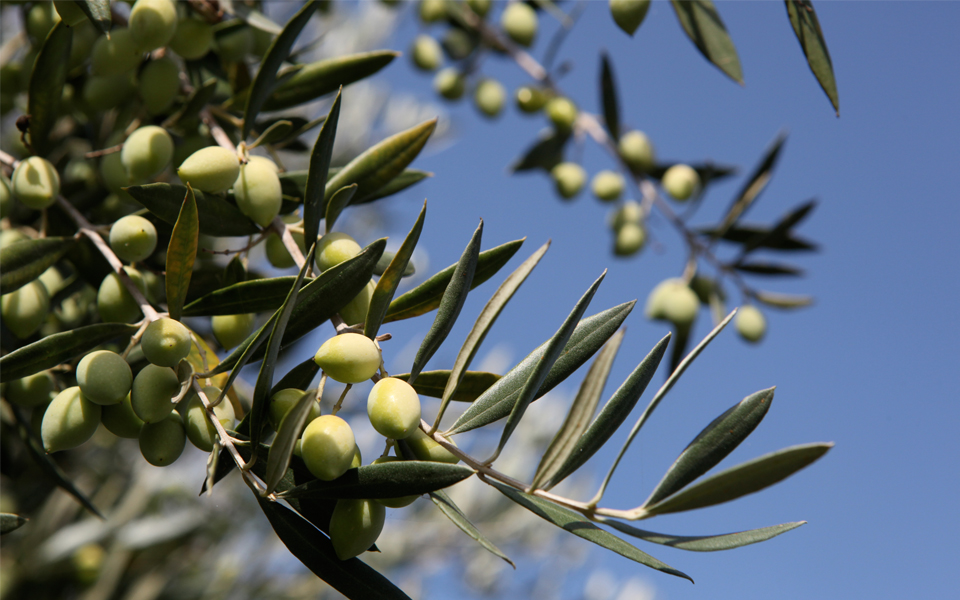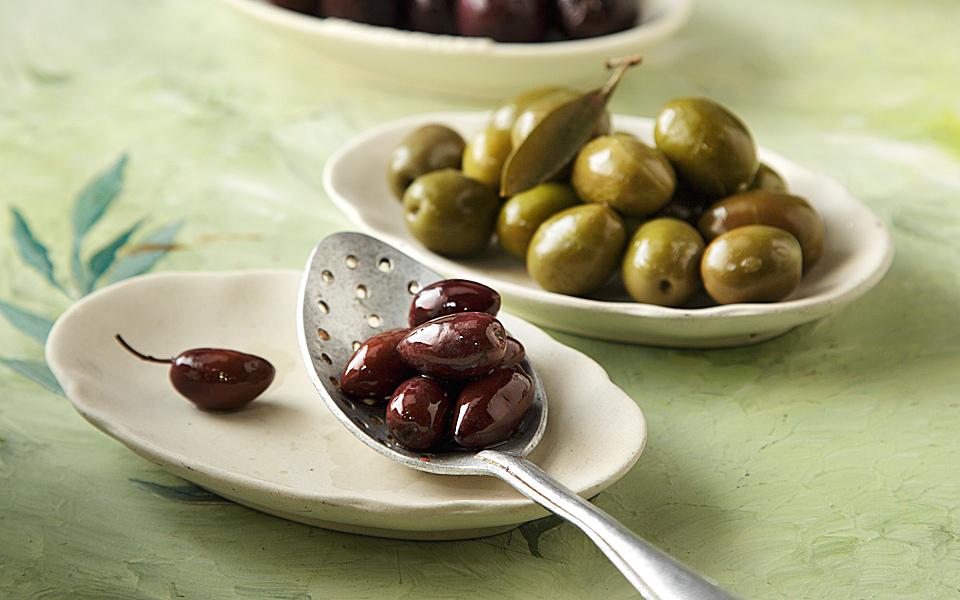If bread, wine and oil were the first foundations of the Greek rural house, the olive was the first and basic flavor of its table. It was perfect for breaking the monotony of plain bread, a support in difficult years and a brilliant highlight in today’s modern salads. Despite its small size, it has a robust flavor and lingering aftertaste.
Table olives are usually derived from varieties with low oil content. The most famous are the Kalamata olives, known internationally for years now. Kalamata olives are usually preserved in vinegar, while Megaritiki olives come to the table wrinkled. In Messinia they make their Manaki olives crushed, divided into two categories: green, gathered before ripening, and the mature black variety. The green ones are crushed with a stone to break the skin without crushing the kernel inside.
The black ones are prepared in more ways. Either way, before olives reach the table, they first go through a stage where the bitter taste is removed, before packaging or flavoring to enhance the taste. In the past, only farmers could prepare olives, but these days you can buy them freshly picked at local markets and grocery stores and prepare them yourself.
The removal of the bitterness is normally done by soaking the olives in water for 10-15 days, changing the water every few days. Many prefer the slightly bitter taste, usually from the crushed variety, which they then store with coriander seeds and lemon slices or lemon juice. They use them in cooking too, for example in meatballs with tomato sauce, which give a slight, tingling bitterness to the sauce.
“Table olives are usually derived from varieties with low oil content. The most famous are the Kalamata olives, known internationally for years now.”

The black ones are cured in vinegar or brine, or a mixture of the two. The type known as throumbes are layered with salt in baskets or sacks and weighed down with heavy stones, and once the bitter taste has gone, you are left with a wrinkled, somewhat dry olive. Many add summer savory (throumbi) which is where these olives get their name from. During Lent, when mostly grandmothers abstain from consuming oil, they add plenty of them to lentils and other stews to enrich the flavor.
So do many monasteries. A bean soup with plenty of vegetables and two handfuls of olives, rather than oil, is a tasty dish whether you’re fasting or not. Throumbes olives can even be added to stifado stew. It is said that in ancient times, they added fennel to the olives in commemoration of the battle of Marathon. Other common herbs are bay leaves, or orange and lemon leaves.
Different regions have varieties of unique-tasting olives. In Crete, for example, they have some very tiny olives (psilolia or elidaki), so delicious, that you can’t stop eating them. A very interesting species are the roupades or gergerimi. In Suidas’ dictionary (12th-15th century) it states: “The olive ripened on the tree was called gegerimi, we do not call them roupades.” These olives can be eaten even without salt, they shrivel slowly on the tree and sweeten, adding another dimension of flavor.
In ancient and Byzantine times, the process of debittering the olives was carried out by salting the olive and placing them in pots with honey or molasses, flavored with cumin, fennel seeds, etc.
“In ancient and Byzantine times, the process of debittering the olives was carried out by salting the olive and placing them in pots with honey or molasses”












